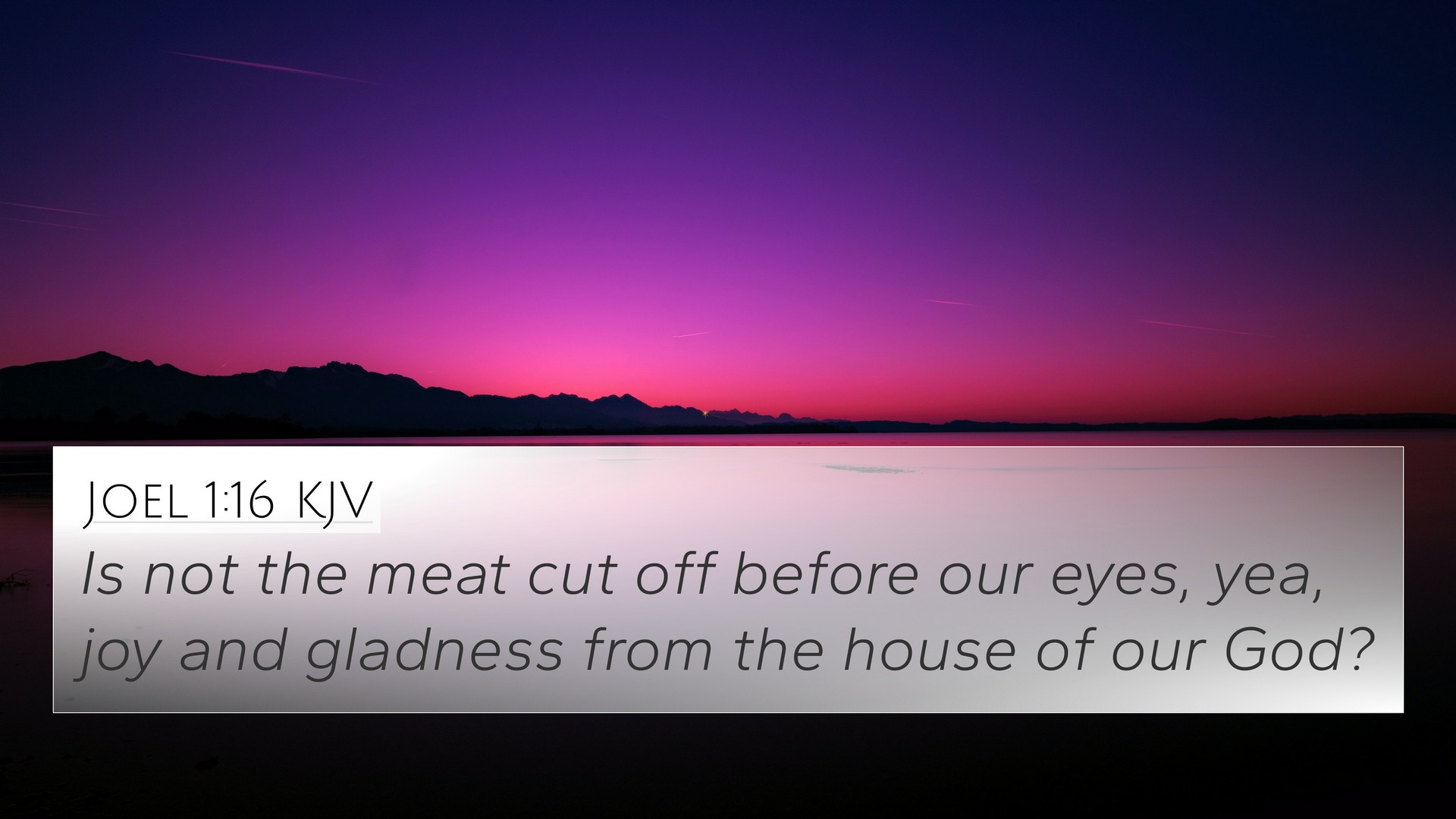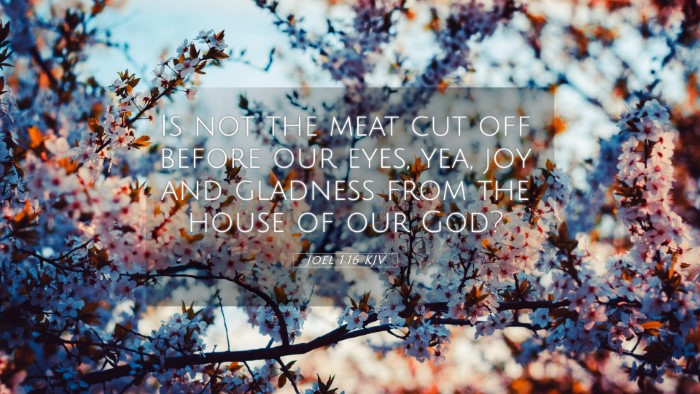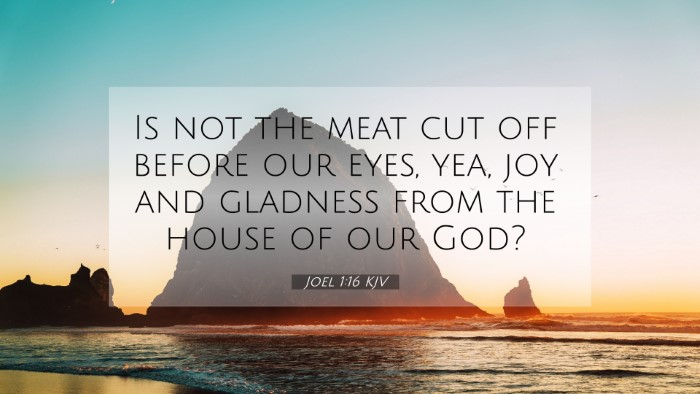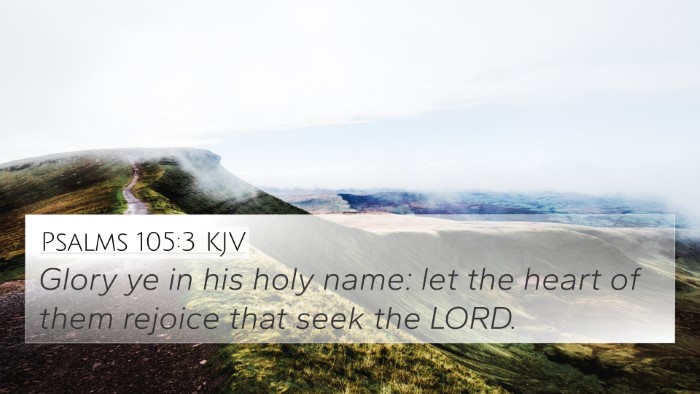Old Testament
Genesis Exodus Leviticus Numbers Deuteronomy Joshua Judges Ruth 1 Samuel 2 Samuel 1 Kings 2 Kings 1 Chronicles 2 Chronicles Ezra Nehemiah Esther Job Psalms Proverbs Ecclesiastes Song of Solomon Isaiah Jeremiah Lamentations Ezekiel Daniel Hosea Joel Amos Obadiah Jonah Micah Nahum Habakkuk Zephaniah Haggai Zechariah MalachiJoel 1:16 Similar Verses
Joel 1:16 Cross References
Is not the meat cut off before our eyes, yea, joy and gladness from the house of our God?
Uncover the Rich Themes and Topics of This Bible Verse
Listed below are the Bible themes associated with Joel 1:16. We invite you to explore each theme to gain deeper insights into the Scriptures.
Joel 1:16 Cross Reference Verses
This section features a detailed cross-reference designed to enrich your understanding of the Scriptures. Below, you will find carefully selected verses that echo the themes and teachings related to Joel 1:16 KJV. Click on any image to explore detailed analyses of related Bible verses and uncover deeper theological insights.
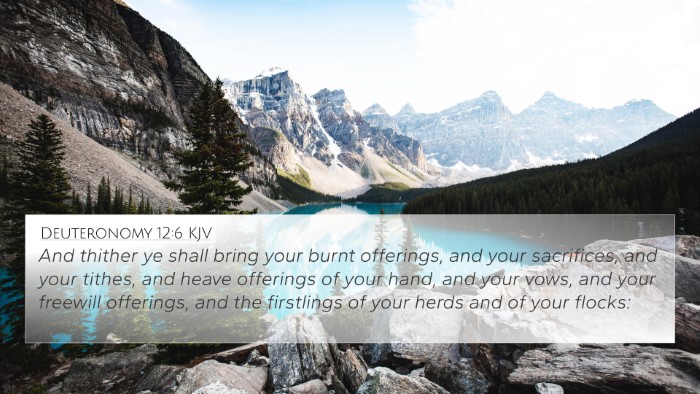
Deuteronomy 12:6 (KJV) »
And thither ye shall bring your burnt offerings, and your sacrifices, and your tithes, and heave offerings of your hand, and your vows, and your freewill offerings, and the firstlings of your herds and of your flocks:
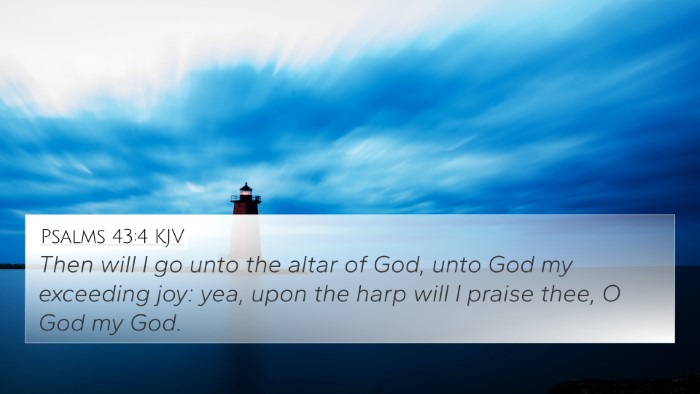
Psalms 43:4 (KJV) »
Then will I go unto the altar of God, unto God my exceeding joy: yea, upon the harp will I praise thee, O God my God.
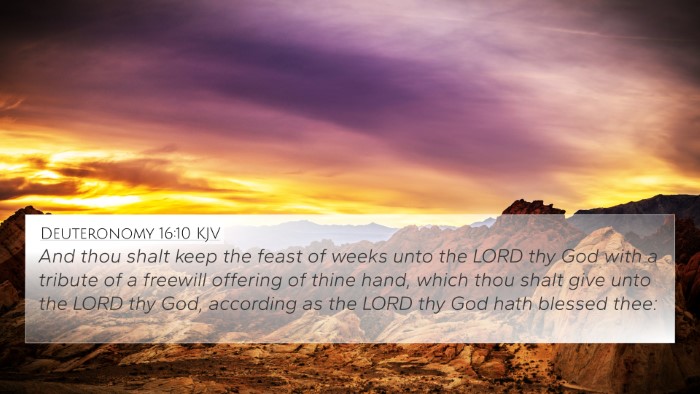
Deuteronomy 16:10 (KJV) »
And thou shalt keep the feast of weeks unto the LORD thy God with a tribute of a freewill offering of thine hand, which thou shalt give unto the LORD thy God, according as the LORD thy God hath blessed thee:
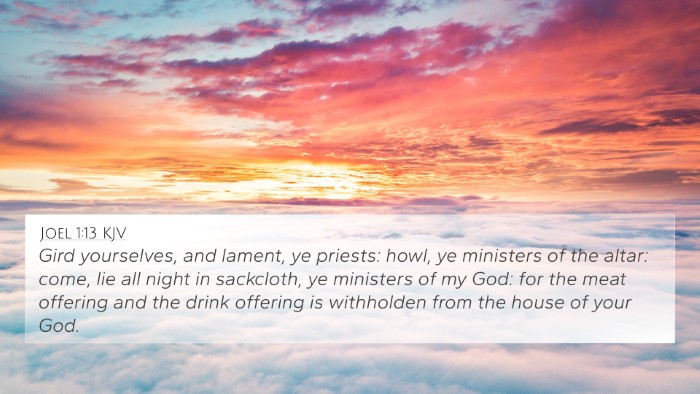
Joel 1:13 (KJV) »
Gird yourselves, and lament, ye priests: howl, ye ministers of the altar: come, lie all night in sackcloth, ye ministers of my God: for the meat offering and the drink offering is withholden from the house of your God.
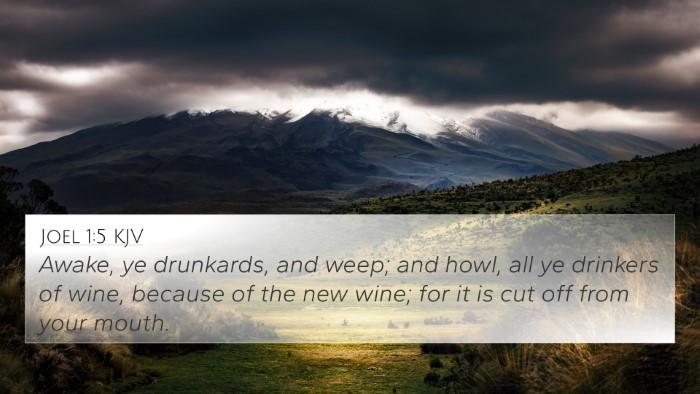
Joel 1:5 (KJV) »
Awake, ye drunkards, and weep; and howl, all ye drinkers of wine, because of the new wine; for it is cut off from your mouth.
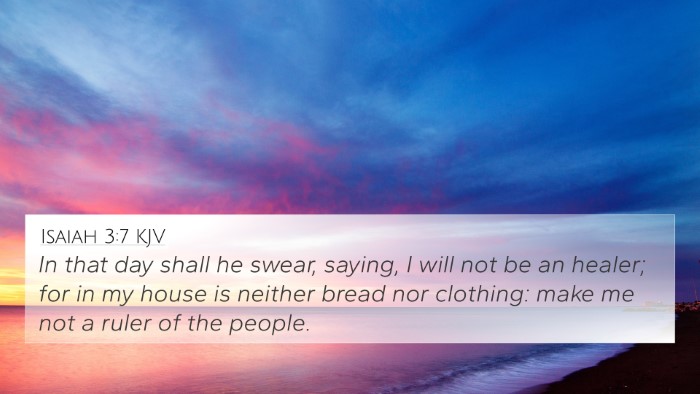
Isaiah 3:7 (KJV) »
In that day shall he swear, saying, I will not be an healer; for in my house is neither bread nor clothing: make me not a ruler of the people.
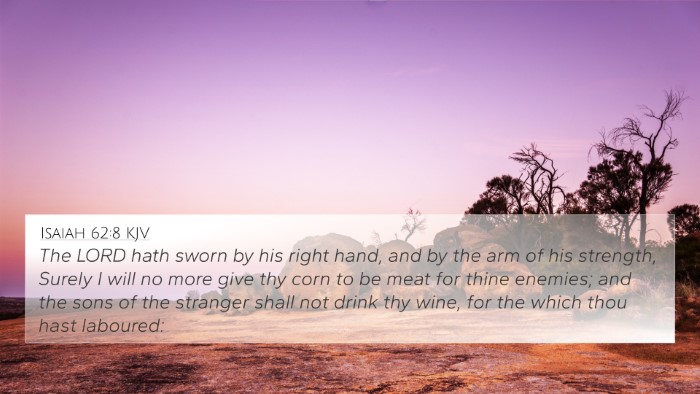
Isaiah 62:8 (KJV) »
The LORD hath sworn by his right hand, and by the arm of his strength, Surely I will no more give thy corn to be meat for thine enemies; and the sons of the stranger shall not drink thy wine, for the which thou hast laboured:

Deuteronomy 12:11 (KJV) »
Then there shall be a place which the LORD your God shall choose to cause his name to dwell there; thither shall ye bring all that I command you; your burnt offerings, and your sacrifices, your tithes, and the heave offering of your hand, and all your choice vows which ye vow unto the LORD:
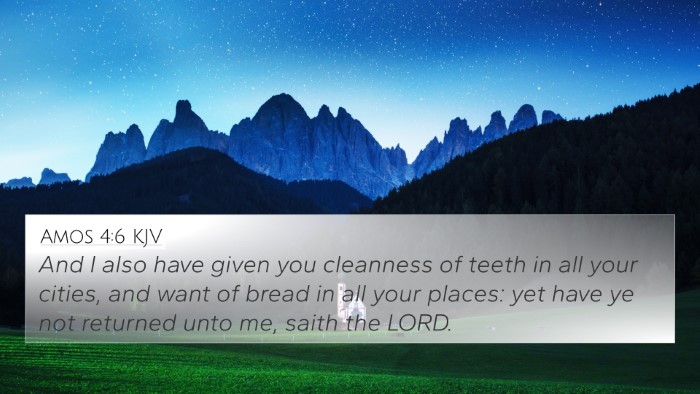
Amos 4:6 (KJV) »
And I also have given you cleanness of teeth in all your cities, and want of bread in all your places: yet have ye not returned unto me, saith the LORD.
Joel 1:16 Verse Analysis and Similar Verses
Understanding Joel 1:16
Verse: Joel 1:16 - "Is not the meat cut off before our eyes, yea, joy and gladness from the house of our God?"
Summary of Meaning
The prophecy in Joel is created during a time of crisis, where the people are experiencing sorrow and loss. The question posed in this verse indicates a recognition of the dire state of their situation, highlighting the absence of joy and sustenance. This loss serves as a divine warning, calling the people to repentance and indicating the weight of their collective sin.
Interpretations from Public Domain Commentaries
-
Matthew Henry:
Henry focuses on the stark reality of the people's grief, indicating that the paltry conditions they face indicate a critical spiritual deficiency. He suggests that the failure of the offerings is directly tied to the hearts of the people—a disconnection from God that leads to a loss of joy and spiritual sustenance.
-
Albert Barnes:
Barnes interprets the absence of gladness as an overarching theme in Joel, where the physical lack reflects a deeper spiritual void. He suggests that the house of God, representing the temple, is indicative of a community estranged from its divine support due to sin, thus emphasizing the need for penitential prayer and restoration.
-
Adam Clarke:
Clarke provides insight into how the desolation of the land affects communal worship. He posits that the physical and spiritual are deeply interconnected, and lamentation for the lost joy indicates a longing for restoration not only from the locusts that have devastated the land but also for the reconciliation with God.
Bible Cross-References
- Thematic Connection: Amos 5:21-24 - God expresses discontent with insincere worship.
- Thematic Connection: Psalms 51:12 - A plea for the restoration of joy following repentance.
- Thematic Connection: Isaiah 24:7-8 - The mourning of the land symbolizes the consequences of sin.
- Thematic Connection: Haggai 1:6 - A reflection on the futility of labor without divine blessing.
- Thematic Connection: Malachi 1:13 - The people are criticized for their disdain towards sacrifices.
- Thematic Connection: Nehemiah 8:10 - The joy of the Lord is a source of strength amidst trials.
- Thematic Connection: Lamentations 2:11-12 - The deep sorrow resulting from the destruction of Jerusalem and the temple.
Connections Between Bible Verses
This verse intricately connects to various other scriptures that explore themes of divine judgment, repentance, and the role of worship in community life. The lament in Joel shows a clear parallel with other prophetic writings that warn against complacency and encourage a sincere return to God. This verse creates a conversation between Old Testament prophecies and the Apostolic teachings regarding the nature of sacrifice and worship in spirit and truth (John 4:24).
Tools for Bible Cross-Referencing
Using a Bible Concordance and a Cross-Reference Bible Study Guide can help delve deeper into understanding how these verses correlate. One can effectively utilize Bible Reference Resources to explore how various themes are woven throughout scripture.
Conclusion
Joel 1:16 serves as a poignant reminder of the importance of sincere worship, community reflection, and the need for penitence. The intertwining of joy, offerings, and divine connection draws a vivid picture of the spiritual landscape of both the immediate context and broader biblical themes.
